Artificial intelligence presents tremendous opportunities for B2B marketers to drive more targeted, personalized and optimized campaigns – achieving greater relevancy, efficiency, and return from their efforts. By leveraging sophisticated AI-powered tools, B2B marketers can streamline repetitive tasks, uncover deeper customer insights to segment better, match ideal content, predict future behaviors, qualify inbound leads faster, strengthen engagement, and automate multi-channel campaigns scaled to fuel complex sales cycles.
This allows marketing and sales teams to increase bandwidth focusing on the highest value activities with accounts, opportunities, and content most likely to convert based on historical patterns AI reveals.

Essential AI Tools For B2B Marketing
Understanding the Role of AI in B2B Marketing
AI is transforming B2B marketing through customer intelligence, content intelligence, conversion intelligence, and channel intelligence capabilities supplying predictive recommendations and optimizations marketers can train, improving over time through machine learning and integration across technology stacks.
Note that before shopping around for the available AI tools in the market, you must first understand the benefits that AI tools will bring to your B2B marketing department.
6 Benefits of AI-Powered Tools in B2B Marketing
Let’s now discuss the benefits of adopting AI in B2B marketing:
Data Analysis and Segmentation
AI ingests data to reveal patterns for precise targeting and segmentation. AI algorithms analyze segments to gain insights into preferences and behaviors.
Lead Generation and Qualification
AI automates lead generation by identifying and crawling for prospects. AI scores lead based on fit, engagement, and past interactions to prioritize the best leads.
Content Personalization and Recommendation
AI tracks engagement to build profiles and recommend aligned content. It matches content to journey stages for better conversion.
Chatbots and Conversational Marketing
AI-powered B2B chatbots handle common questions and qualify leads 24/7. Chatbots deliver tailored information through conversational interfaces. Buyers often prefer chatbots for quick questions, freeing up sales teams and building relationships requiring human nuance.
Predictive Analytics
AI models predict the best segments, leads, conversion rates and deal cycles. This enables data-backed campaign planning and execution.
Marketing Automation and Campaign Optimization
AI automates, manages and optimizes complex campaigns. Machine learning improves campaign results over time.
The Top AI Tools for B2B Marketing
Lead Generation and Qualification
AI tools can help companies identify and qualify B2B leads. This can be done by analyzing customer data, tracking interactions, and identifying patterns. Some examples of AI-powered lead generation and qualification tools include:
Monday.com: A versatile AI-based lead management tool that streamlines the entire lead journey. From capturing and managing leads to seamlessly integrating them into your database, Monday.com is a go-to solution.
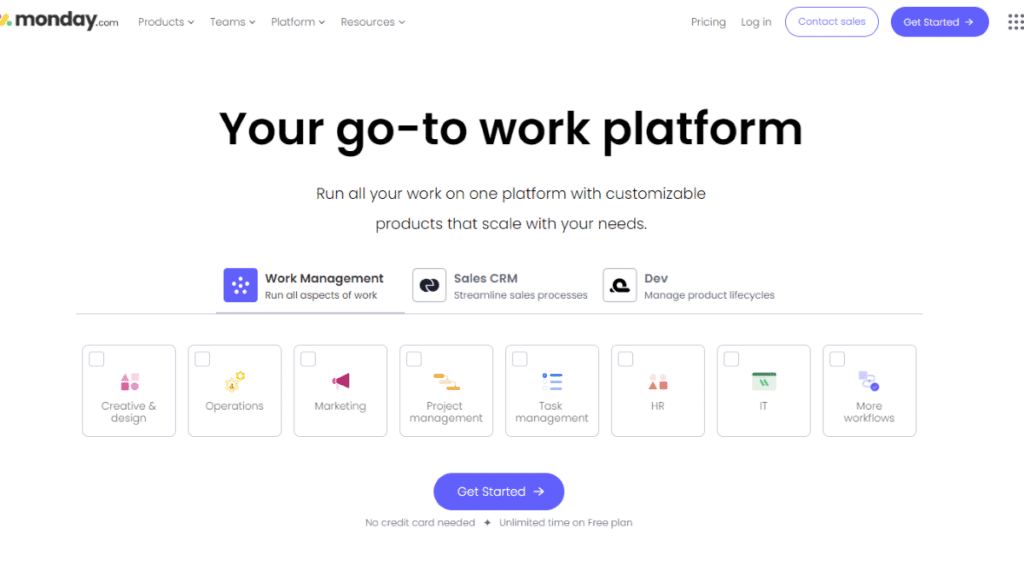
Jasper.ai: This multifaceted tool isn’t just about lead management; it’s a powerhouse for content generation and refining the tone of your messaging. Leveraging machine learning, Jasper.ai can even assist in combating plagiarism, offering comprehensive support for your content needs.
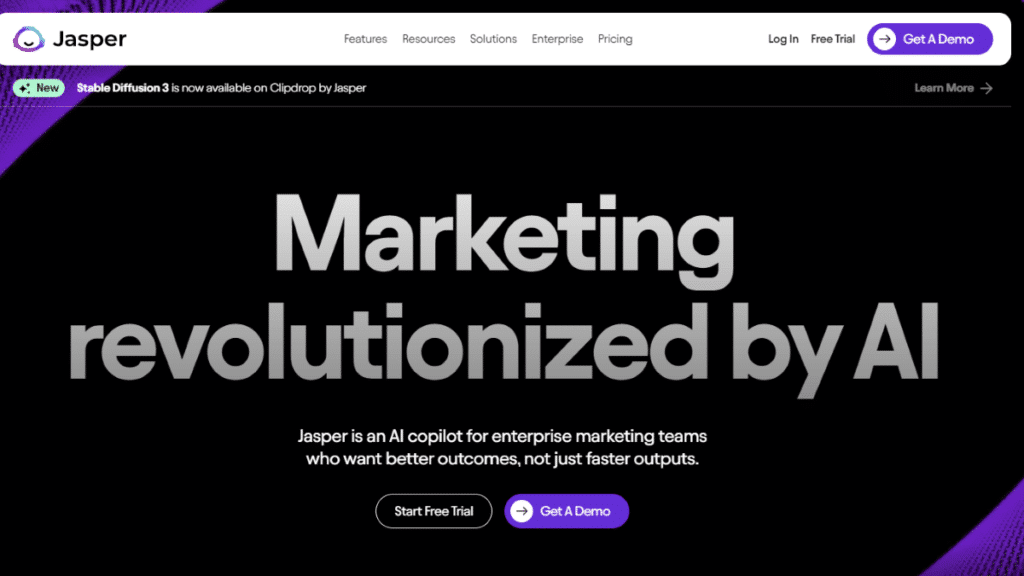
Personalization and Content Recommendations
AI solutions can enable personalized content recommendations. They can also help by enhancing customer engagement and driving business growth. Some examples of these tools when it comes to personalization and content recommendation include:
Fireflies.ai: This tool takes personalization to the next level by offering features that allow for personalized content at scale, like its ability to automatically transcribe and analyze meetings, conversations, and interactions allowing businesses to understand their customers better and make data-driven decisions.
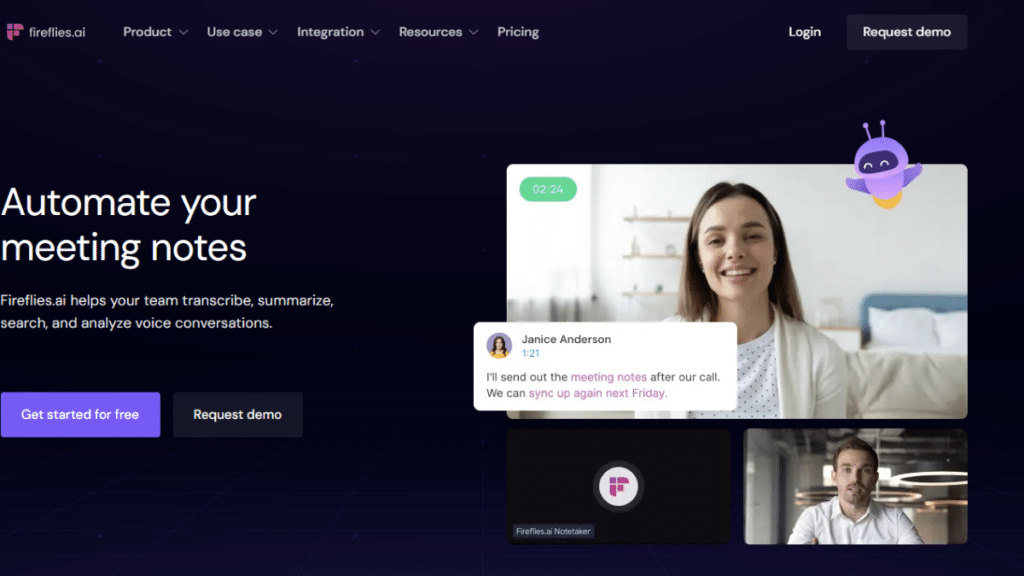
Surfer SEO: In the competitive world of digital marketing, ranking high on search engines is paramount. Surfer SEO, powered by AI, helps optimize content for search engines, offering invaluable insights through keyword research.
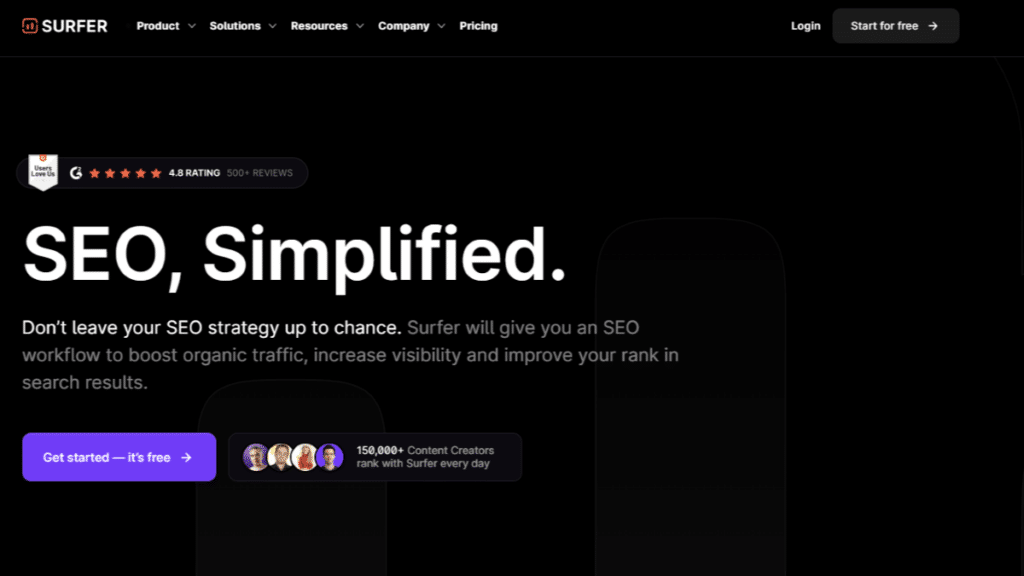
Account-Based Marketing (ABM) Tools
AI-driven ABM tools can help target specific accounts and improve the effectiveness of marketing strategies. Examples include:
Botsonic: Empowering businesses to create highly personalized and engaging content for ABM campaigns, Botsonic is a game-changer in the world of B2B marketing.
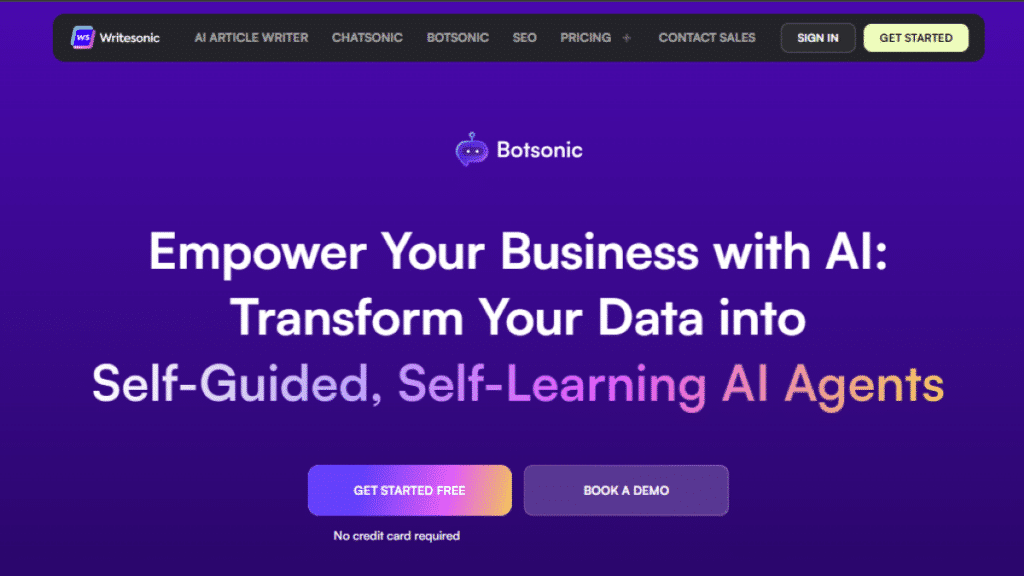
Rapide.ly: This AI-driven ABM software is your partner in identifying and engaging with key accounts. It not only offers real-time insights but also provides recommendations to help you refine your marketing strategies.
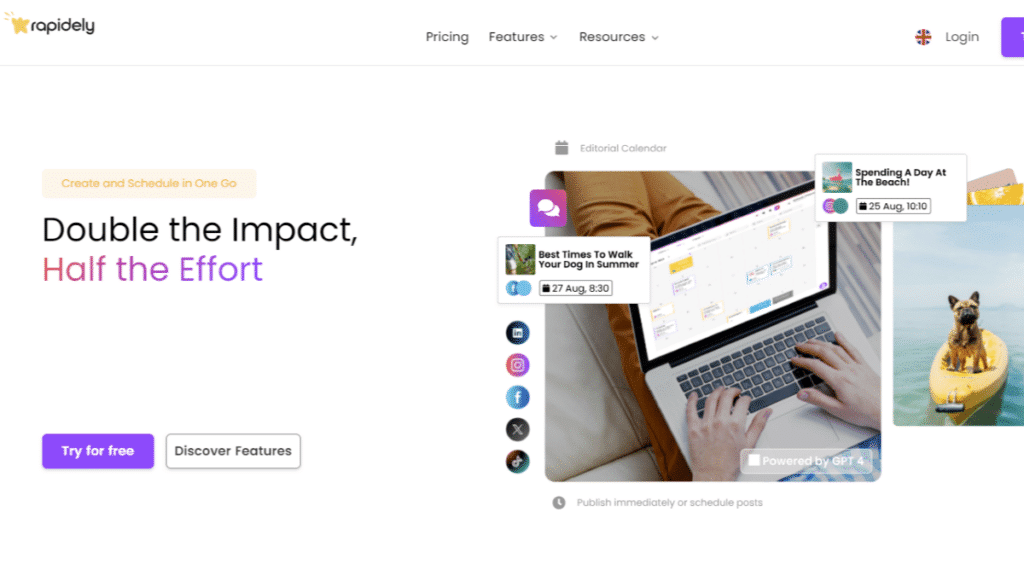
Marketing Analytics and Predictive Analytics
AI-driven analytics tools can provide data-driven insights and optimize marketing strategies. Examples of these tools include:
Articoolo: When it comes to content generation, Articoolo is your AI companion. It excels at creating engaging content that resonates with your audience.
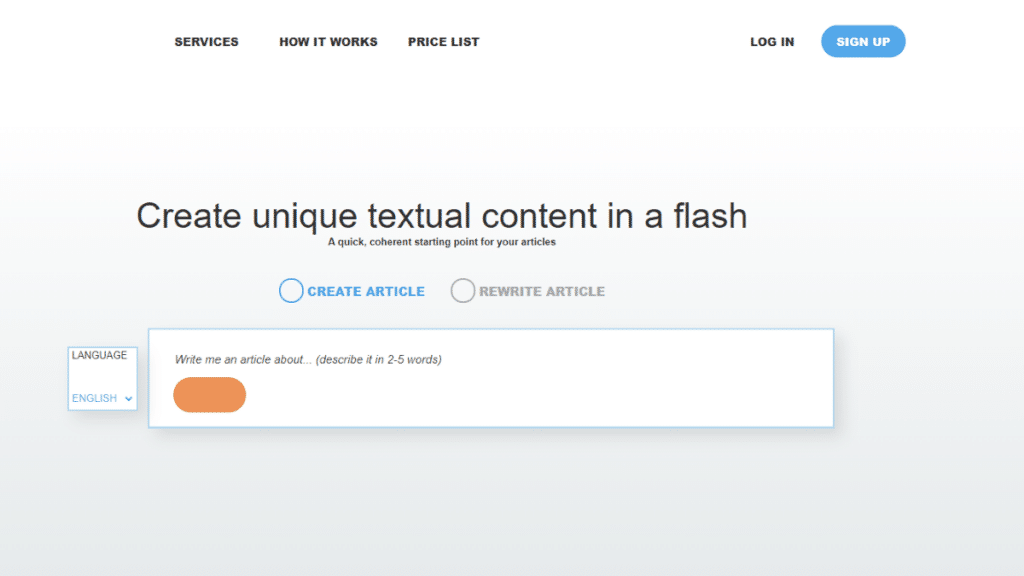
Quillbot: This versatile tool aids in paraphrasing and content generation, enabling companies to craft unique and personalized marketing content, enhancing their overall marketing efforts.
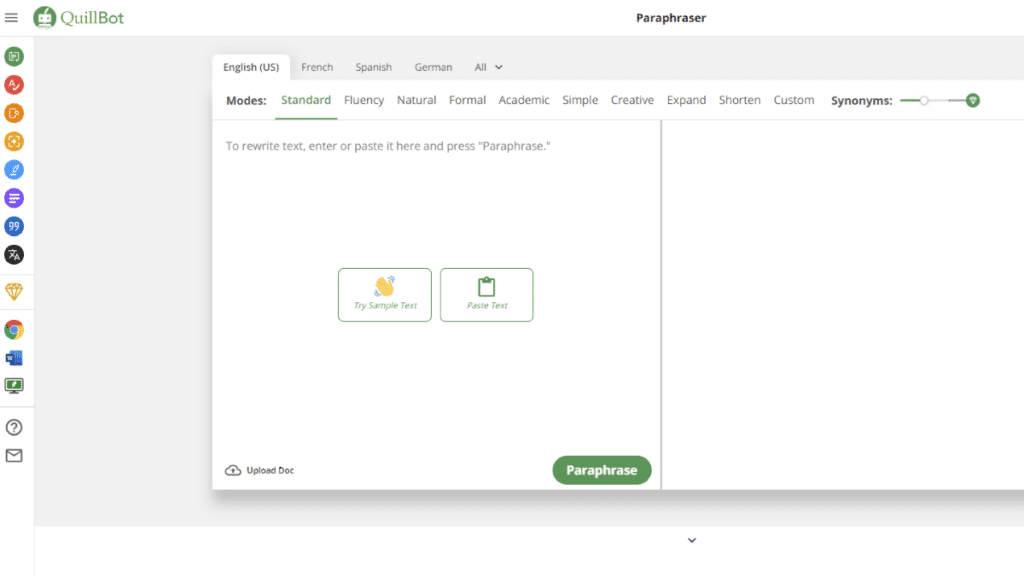
Chatbots and Customer Support Automation
AI-powered chatbots can improve customer support and engagement in B2B settings. Some examples of tools include:
HubSpot: By integrating AI technology into its content assistant and ChatSpot features, HubSpot provides real-time insights and support, making customer interactions seamless and efficient.
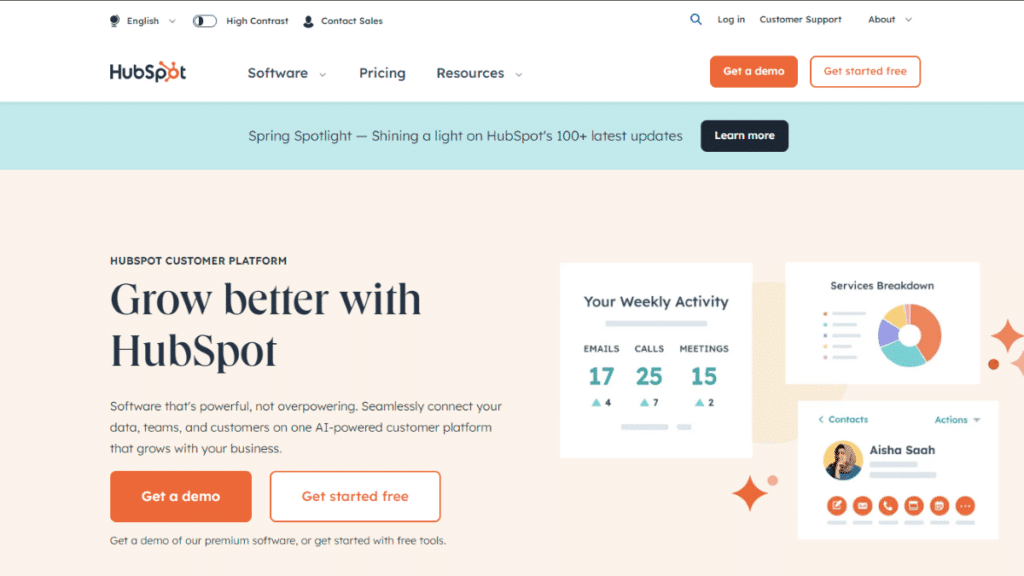
ChatGPT: Designed to empower companies with AI-driven chatbots, ChatGPT is a key player in enhancing customer support and engagement. It ensures swift responses and improved customer experiences, strengthening client relationships.
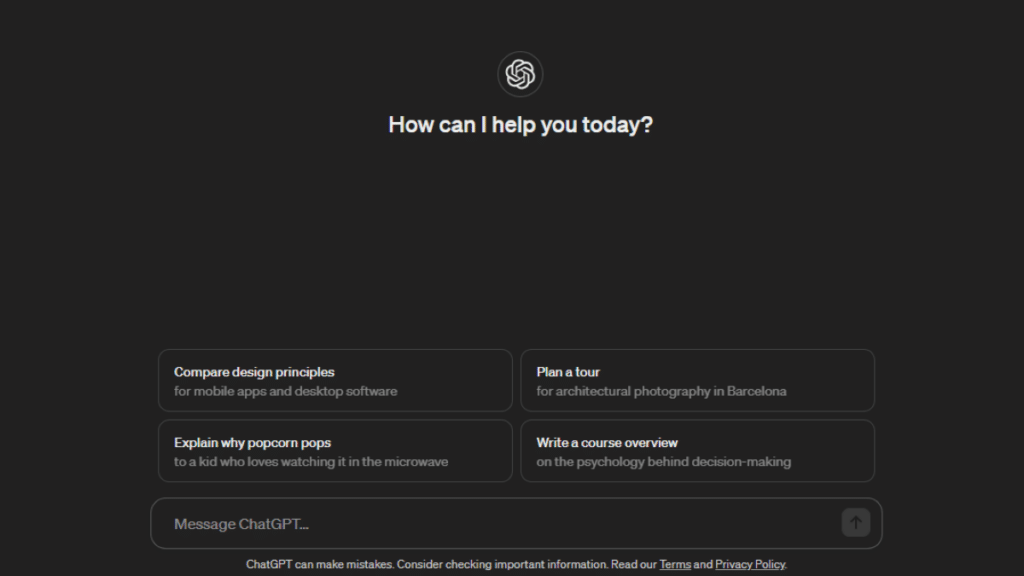
6 Common Challenges in B2B Marketing that AI Can Address
B2B marketing leaders acknowledge AI’s immense potential but still face hurdles to fully implementing it across organizations and functions where benefits seem clearest on paper. By understanding common challenges, marketers can address and overcome obstacles whether skepticism, expertise constraints, or data issues to responsibly tap AI capabilities applied strategically.
Data Quantity and Quality
Limited data quantity and quality issues restrict AI accuracy. Prioritize consolidating, cleansing, and mining data to fuel AI.
Skepticism
Skepticism lingers about AI matching human intelligence for creative tasks. However, methodical testing of AI augmenting teams builds confidence in smart collaboration across areas like content production.
Access to Data
AI helps integrate and analyze data from various sources. Makes customer data more accessible for marketing campaigns.
In-house Expertise
Struggling to attract talent, prioritize upskilling programs to expand data, analytics, and martech literacy internally. AI partners can supplement efforts until reaching sufficient maturity managing capabilities cost-effectively.
Time Constraints
Maximizing AI efficiencies requires upfront investments. Start small in high-impact areas before automating broadly.
Accuracy and Reliability
To ensure ethical, accurate AI, balance innovation with process rigor including monitoring, reviews, and human oversight policies. This provides guardrails and remedies.
Considerations When Choosing AI Marketing Tools
When selecting AI tools for B2B marketing, companies must consider the following factors:
Budget and cost considerations: AI tools can vary in price, and as such, companies must consider their budget and the potential return on investment of the tool before investing.
Integration with existing systems: B2B companies must consider whether the AI tool can integrate with their existing systems. Such systems may include CRM or marketing automation platforms.
Scalability and ease of implementation: Companies must think about whether the AI tool can scale with their business needs. They must also consider the ease of implementation and management.
Customer support and training options: Companies must think about the level of customer support and training options provided by the AI tool vendor. This helps to ensure that they can effectively implement and manage the tool.
By considering these factors, companies will be able to choose the right AI tools for their specific needs and goals. It also guarantees that they can effectively leverage AI to enhance their marketing strategies, improve customer engagement, and drive business growth.
Ethical and Privacy Considerations
As AI becomes more prevalent in B2B marketing, companies must consider ethical and privacy concerns related to AI. Below are some of the key considerations:
Data privacy and transparency: Respecting customer privacy builds trust. Conduct data impact assessments determining what is absolutely necessary for usage intents before collecting any points. Anonymize data, allow opt-outs, disclose in plain language, and impose access restrictions per fair information practice principles.
Bias and discrimination: Hidden biases negatively impacting segments can manifest through AI models informed by historical decisions. Detect bias through statistical tests, implement bias mitigation procedures when identified, and monitor effects continually ensuring fairness and representation regarding all customers.
Accountability and responsibility: Clear lines assigning human accountability for AI system outcomes, comprehensive model documentation, rigorous cross-departmental oversight procedures, and whistle-blowing policies bolster ethical accountability. Both builders and users share upholding principles.
Equity and accessibility: While innovation promises personalization, differing data realities across markets can inadvertently concentrate benefits unfairly. Being proactive about equitable model design, inclusive data sampling, and fairness benchmarking checks limitations. Champion overall accessibility.
Conclusion
Artificial intelligence is the game changer in B2B marketing. That’s considering that it’s able to provide valuable insights, improve content personalization and lead generation, enhance customer engagements, and improve efficiency. These benefits have made AI a must-have, especially for B2B marketers.
Just like any new technology, there are challenges and concerns, especially when it comes to data privacy and protection. However, it’s possible for companies to navigate this and many other challenges as shown in the article.
We help leading business-to-business brands hit their marketing goals. Get in touch to learn how Altitude Marketing can help you reach your peak performance.



